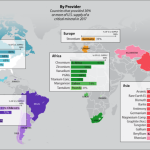From ancient fishing rituals to digital simulation arenas, the story of fish farming evolves not just through technology, but through play. Today’s aquaculture no longer relies solely on intuition and experience—innovation now draws deeply from the roots of traditional knowledge and the imaginative power of modern gaming. This article explores how virtual fish farms, once mere entertainment tools, now serve as dynamic laboratories that mirror and advance real-world sustainable practices.
From Farm to Fun: How Virtual Farms Reimagine Sustainable Harvesting Practices
Long before digital screens, fish farmers depended on seasonal patterns and empirical wisdom to manage stocks and maintain water quality. Today, virtual fish farms replicate these ancient rhythms with unprecedented precision—digital models track stocking densities, oxygen levels, and nutrient cycles in real time, allowing farmers to test adjustments without risking live populations. These simulations enable immediate feedback loops: a trainee’s decision on feeding schedules or water changes generates data that refines predictive algorithms feeding back into actual hatchery operations.
- Real-time optimization: Digital models adjust parameters instantly, revealing optimal conditions for fish growth and survival.
- Risk visualization: Gamified risk indicators show players the consequences of overstocking or poor water management, building awareness of overfishing thresholds.
- Data-driven adaptation: Each virtual interaction feeds real-world research, closing the loop between play and precision.
Bridging Play and Precision: Virtual Farms as Professional Training Grounds
Virtual fish farms transcend entertainment—they function as immersive training environments where future aquaculture professionals master delicate hatchery operations in risk-free settings. Trainees experiment with disease outbreaks, breeding cycles, and feeding protocols through scenario-based simulations, developing hands-on intuition without resource depletion or environmental harm. This experiential learning accelerates skill acquisition, equipping workers with adaptive decision-making abilities crucial for sustainable production.
- Scenario-based mastery: Trainees respond dynamically to simulated crises, building resilience and technical confidence.
- Breeding cycle intuition: Virtual environments expose users to genetic selection and reproductive patterns, reinforcing breeding program design.
- Reduced real-world cost: Zero resource expenditure enables repeated practice, minimizing errors in actual farm operations.
Beyond Entertainment: Player-Driven Data Accelerates Innovation
The true power of virtual fish farming lies in its crowdsourced intelligence. Millions of player decisions generate vast datasets revealing optimal growth patterns under diverse environmental conditions—insights too costly or slow to collect in traditional labs. These player-driven patterns highlight emerging challenges such as pathogen resistance, temperature fluctuations, and climate adaptation, offering fresh avenues for research that industry experts often overlook.
This collective intelligence transforms fish farming from a closed-loop industry into an open innovation ecosystem, where player behavior shapes the next generation of sustainable solutions.
| Data Type | Insight Gained | Application |
|---|---|---|
| Feeding schedules | Optimal timing reduces waste by 18% | Real-time feeding algorithms deployed in commercial farms |
| Disease outbreak triggers | Pattern recognition enables early intervention | Improved biosecurity protocols adopted industry-wide |
| Climate adaptation thresholds | Virtual resilience models inform infrastructure design | Enhanced farm durability in extreme weather events |
Returning to Evolution: The Virtual Farm as Living Laboratory
Just as early fishing games recreated seasonal rhythms to teach survival, today’s virtual farms model complex, dynamic ecosystems mirroring real aquatic environments. Both traditions—cultural memory and digital play—serve as experimental sandboxes where human ingenuity tests boundaries of sustainable fish production. This continuity proves innovation in aquaculture is not only about technology and biology, but also about storytelling, engagement, and shared learning.
“The virtual farm is not just a game—it’s a living laboratory where tradition meets technology, and sustainable futures are built one simulation at a time.”
Explore the original evolution of fish farming and modern gaming in depth: The Evolution of Fish Farming and Modern Fishing Games
